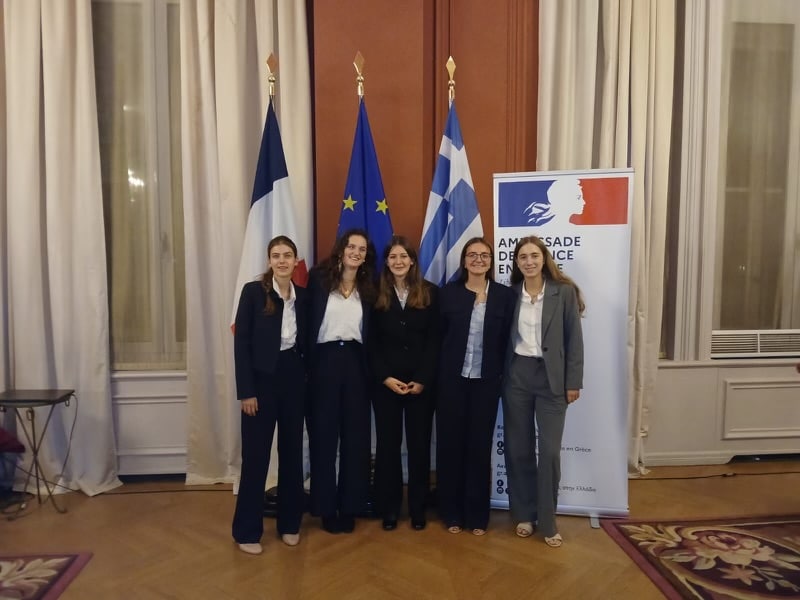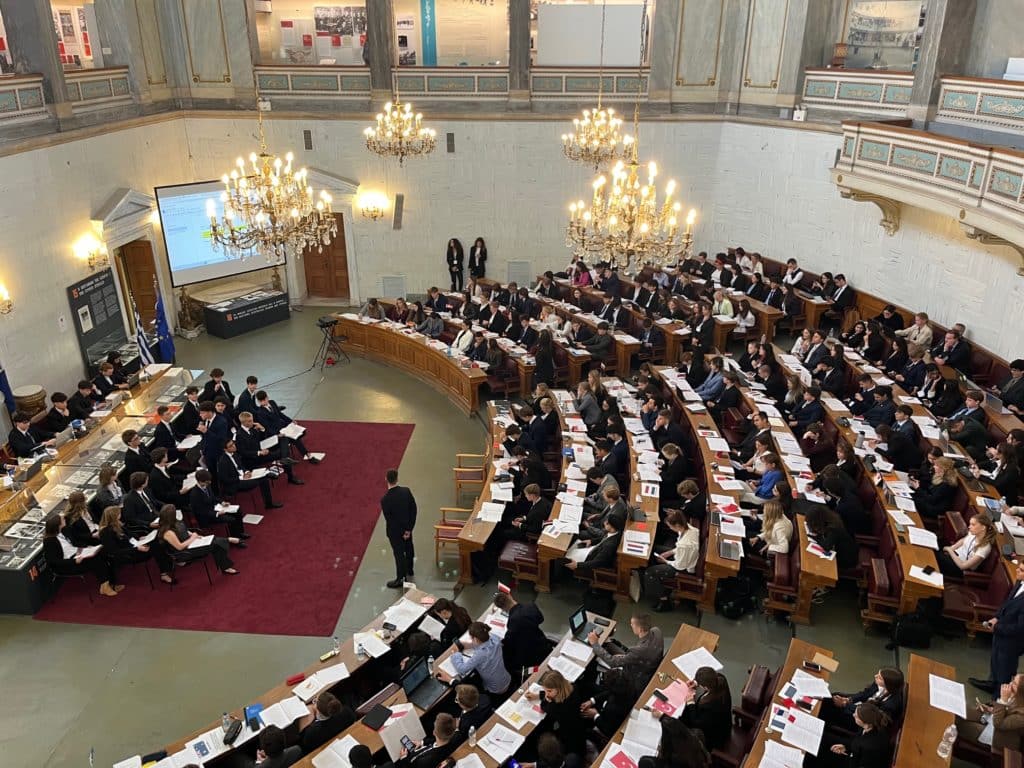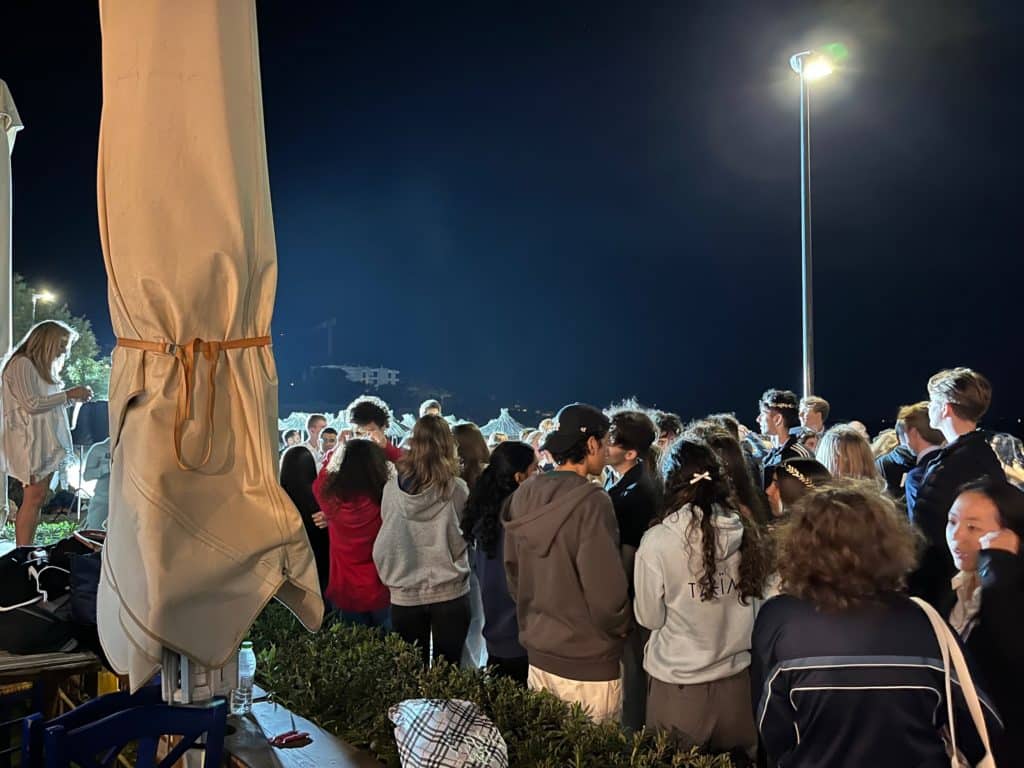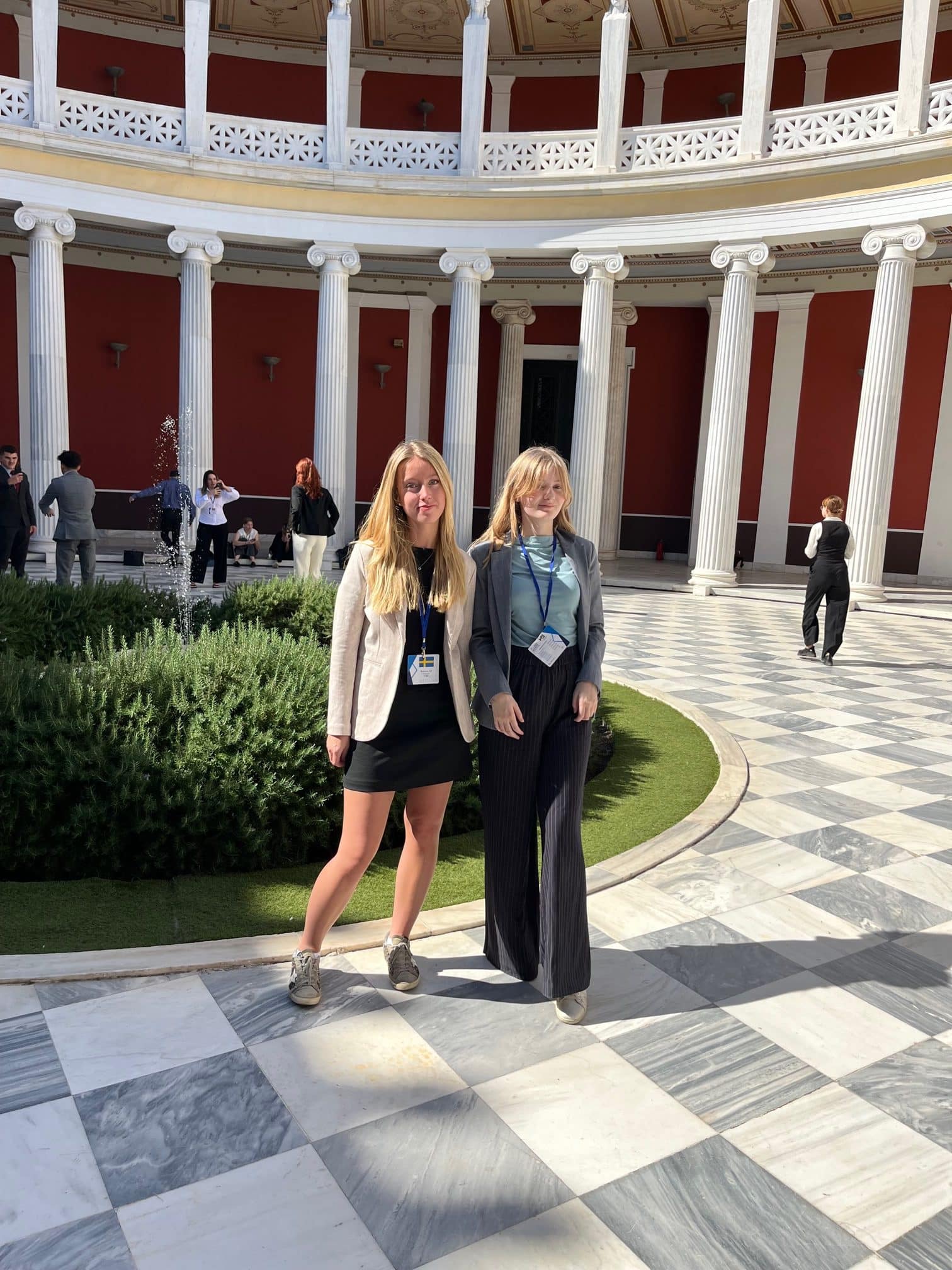Published 30 October 2024
Report from Model EP in Athens
Our students Maja Oxenvad and Rebecca Lif in SA25, traveled to Athens to participate in Model EP – European Parliament.
Model EP is an international simulation of the work of the European Parliament EP for school students. Together with their teachers and four other students from Viktor Rydberg’s school VRG, Maja and Rebecca have worked intensively in the Model EP committee and practiced how the real work in EP is done.
Here is Maja’s diary and report from the work during the three days in Athens, autumn 2024:
Committee work
For three days we worked in the MEP committee. On the first day, we discussed problems and consequences of our questions and why they were important, which provided interesting perspectives. We also started practicing formal procedures for the Plenary Session, the gathering where the delegates vote on all the resolutions.
On days two and three, we focused mainly on solutions, which required us to search and look for new information constantly. This made the work very interesting and fun, as you could not fully prepare in advance. On the last day, we also distributed the speaking roles before the general assembly through fun activities, which was both fun and effective.

Lobbying
During lobbying, we got all the resolutions collected in a so-called “resolution booklet”. Immediately, everyone began to scrutinize each other’s proposals to find errors and flaws. An amendment basically means a change in the law, which is proposed based on these discovered problems. During lobbying, participants circulated their ideas for amendments and collected signatures from those who agreed with the proposed amendment. Amendments are formally presented later during the Plenary Session.

Plenary session
On Thursday and Friday we gathered in the old parliament of Athens to present and vote on the finished resolutions.
After a committee answered factual questions about its resolution, one of the amendments signed during yesterday’s lobbying was presented. The delegate who had written the amendment that was presented had to answer debate questions from the committee and the rest of the delegates. After that, the assembly voted whether the amendment should be written into the resolution.
The committee would then defend its resolution during the open debate, when all delegates could ask questions about the resolution and its shortcomings. During all these stages, the formal procedures were particularly important; among other things, each delegate had to address the chairman who gave him the floor before he began to speak, and during his performances, personal pronouns were to be avoided.
After the debate was closed, each head of delegation would present their delegation’s votes, which determined whether or not the resolution passed. In total, four out of ten resolutions were voted through by the delegates.

The whole week was very productive, and the work we carried out gave us insight into how the processes in the European Parliament works. It was rewarding to collaborate with young people from all over the world to put forward the ideas that we consider important for solving today’s social issues.
Maja Oxenvad, SA25


